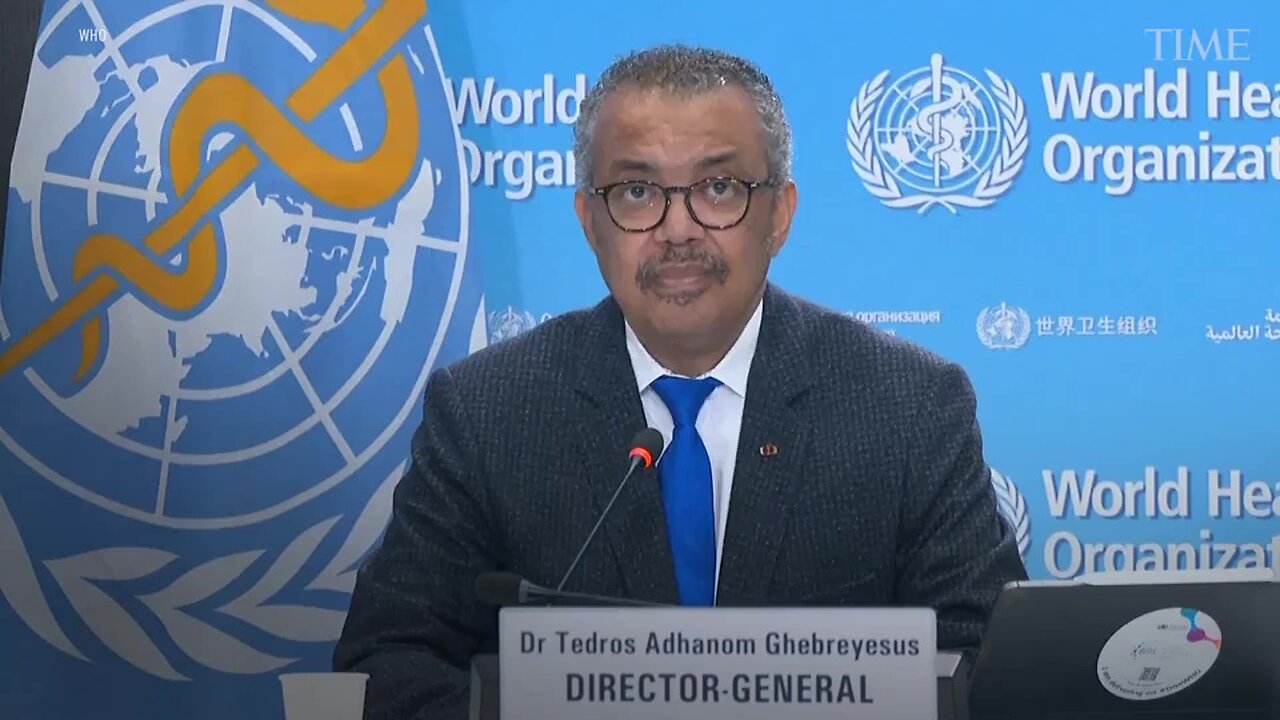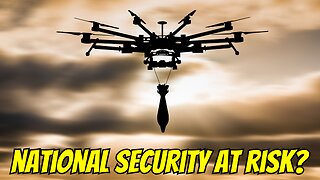Premium Only Content

TIME - This Emergency Is Over. Now It's Time to Get Ready for the Next Pandemic (MAY 11, 2023)
https://time.com/6278415/covid-19-pandemic-end-next-pandemic/
This Emergency Is Over. Now It's Time to Get Ready for the Next Pandemic
By Kizzmekia Corbett May 11, 2023
"Having been a part of the team that developed a leading COVID-19 vaccine, I am often invited to speak or write about the successes of our work—work that led to the fastest vaccine development in history.
But, more than three years into the COVID-19 pandemic and with America’s public health emergency expiring on May 11th, it has become increasingly clear that this moment is not only an opportunity to reflect on successes but also grapple with the setbacks, pitfalls, and failures that defined our response to COVID-19.
Read More: Don’t Move Past COVID-19. Learn From It
The responsibility to improve our response to future global health crises, I think, lies in correcting our less-than-perfect actions. There are countless opportunities to tweak, iterate, or outright overhaul our pandemic response—but as I review our fight against the virus, particularly from the front row of the frontline, three paths of action stand out.
First, the federal government needs to change the paradigm that defines our federal research focuses, with an emphasis on being proactive instead of reactive.
There are 23 families of viruses associated with human infection, and the state of the research into each of these families varies significantly. In my specialty of coronaviruses, we had made significant strides before the pandemic struck. The strides we made were not because of any extraordinary funding streams, but merely because we were interested in closing gaps in scientific understanding—particularly in light of the recent threats posed by SARS-1 and MERS in prior years, which showed the pandemic potential of coronaviruses.
It is often deemed “miraculous” that our COVID-19 vaccine progressed to phase 1 clinical trial in merely 66 days, but I imagine the vaccine development process could have been even more efficient had our technology gone into phase 1 clinical trial prior to the pandemic. Such an advance beyond our 2017 manuscript to the clinic would have required more financial investment and intellectual resources, but we could have been better positioned to move even faster when COVID-19 struck.
Read More: How America Lost the War to COVID-19
Basking in our successes means also admitting that we were dealt a lucky hand; the pandemic response could have been way worse. Our understanding of many of these viral families lags far behind our understanding of coronaviruses. If a pathogen from one of those families ever takes off, our wait to clinical trial might be 600 days, not 66. The harm inflicted, both economically and in terms of lives lost, would be devastating.
I’d like to see us invest in each of the 23 viral families that infect humans. The National Institutes of Health (NIH) should lay out checkpoints: key scientific milestones we need to hit for each viral family, so we’re ready to move rapidly in case a pathogen emerges and begins to spread. The investment would be significant, to be sure. But the total cost would be far smaller than COVID-19’s estimated $16 trillion drag on America’s economy and the enormous toll of lives lost.
Secondly, public health practitioners need to recognize that our research is only as strong as our communication. Even our strongest peer-reviewed, evidence-driven findings won’t have their full impact if we cannot clearly and effectively communicate them to the public.
Unfortunately, effectively disseminating complex information is more difficult now than ever before. Public health communicators must project both their humanity and their expertise, which can be a difficult tightrope—especially in a highly polarized political environment that harms public trust. Clarity, conciseness, honesty, and empathy go a long way with the public, especially in moments of uncertainty.
Public health leaders must also recognize that sometimes the messenger is just as important as the message. Instead of relying heavily on leadership in D.C., we must tap into trusted voices in communities across this country, from physicians to community health workers to pharmacists. Once appropriately empowered, these community leaders made a big difference during the pandemic.
Imagine my surprise – and embarrassment – when, in April 2020, I announced to America on CNN that we had a vaccine under development that was backed by years of research, only to find that almost no one had ever heard of said research. How had we allowed the disconnect between our publications and public knowledge to grow so large? Repairing that disconnect is a continuous feat."
Etc.
-
 23:26
23:26
Dave Portnoy
1 hour agoDavey Day Trader Presented by Kraken - December 17, 2024
1814 -
 LIVE
LIVE
Matt Kohrs
10 hours agoLive Trading $1M, The Bitcoin Pump & New Squeeze Alert || The MK Show
1,345 watching -
 LIVE
LIVE
Neil McCoy-Ward
31 minutes agoThis Is The CRAZIEST Situation I've Researched All Year...
257 watching -
 LIVE
LIVE
Dad Dojo Podcast
1 hour agoEP13: Youth Sports: Specialization vs Versatility
38 watching -
 LIVE
LIVE
2 MIKES LIVE
1 hour agoTHE MIKE SCHWARTZ SHOW with DR. MICHAEL J SCHWARTZ 12-17-2024
362 watching -
 36:14
36:14
BonginoReport
1 hour agoAfter Weeks of Cheering on Gun Violence, Left Calls for Gun Control (Ep.106) - 12/17/2024
17.6K46 -
 LIVE
LIVE
Wendy Bell Radio
4 hours agoThe Swamp's Chickens Come Home to Roost
12,246 watching -
 1:18:54
1:18:54
Game On!
9 hours ago $4.90 earnedVikings and Falcons DOMINATE on Monday Night Football!
38.8K1 -
 LIVE
LIVE
The Sufari Hub
7 hours agoHUGE 5 DAY GAMING STREAM | Marvel Rivals & Fortnite and MORE
225 watching -
 8:51
8:51
Guns & Gadgets 2nd Amendment News
1 day agoDrones Putting National Security At Risk?!
38.7K21